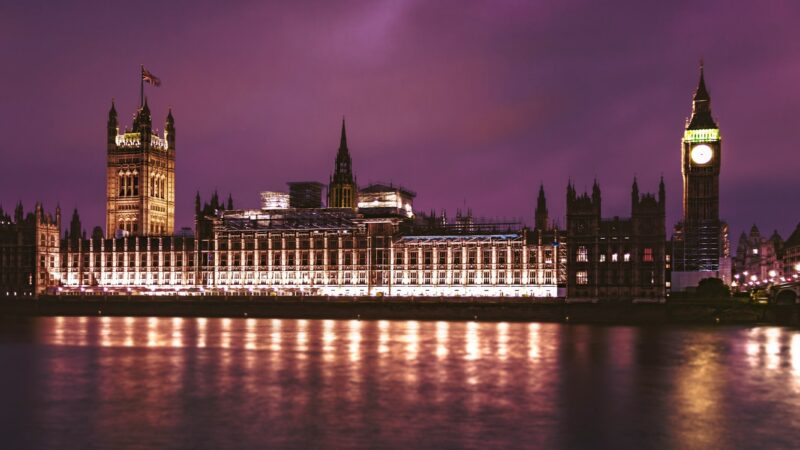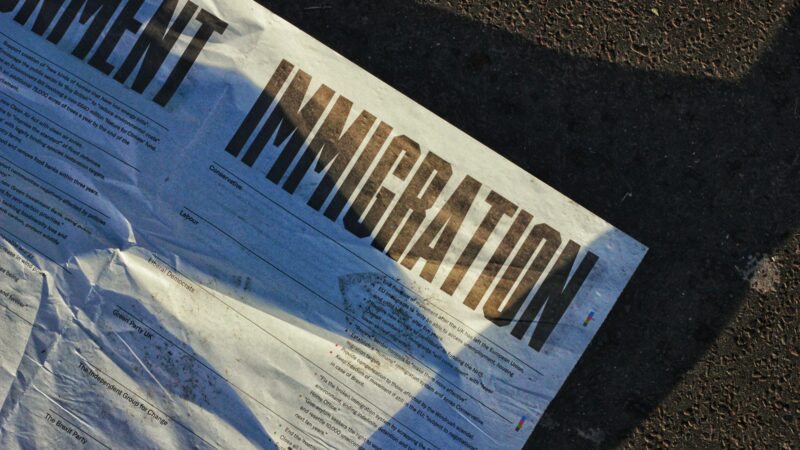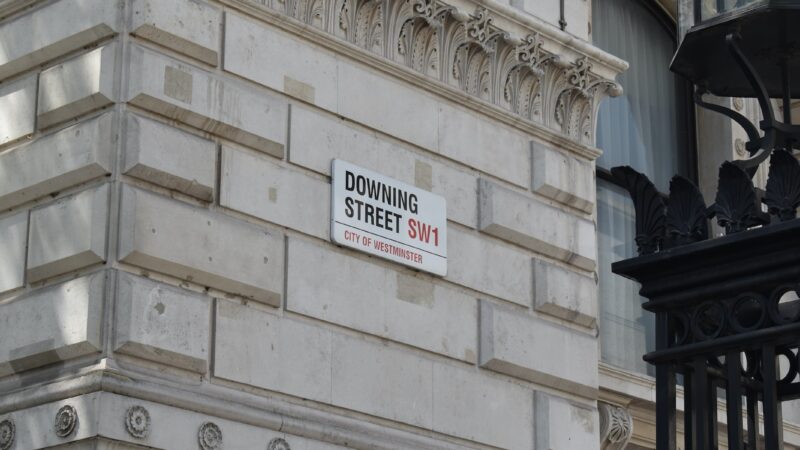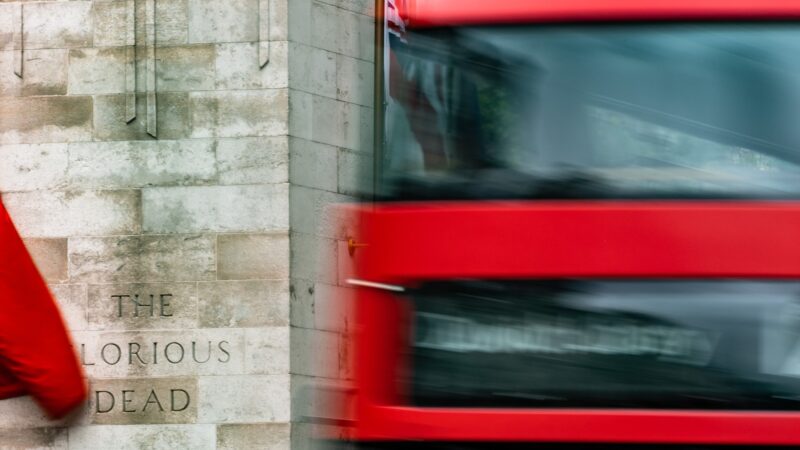It’s not the economy, stupid
Although it seems so distant, the current political landscape is a direct product of 2016. Without specific reference to the victory of Donald Trump, the Brexit referendum, and the rise of anti-immigration parties across the Western world, it’s impossible to sufficiently contextualise the obvious sense of insecurity characteristic of contemporary left-leaning politics and political analysis.
Every twenty years or so, the Western Left convinces itself it can finally do away with its native working class supporters and fully re-align itself along socially liberal lines, catering to the interests of ethnic and sexual minorities, immigrants, women, graduates, the underclass, and the progressive elements of the haute bourgeoisie.
These attempts at fully actualising a rainbow coalition of the oppressed and their allies rarely work out, backfiring and resulting in catastrophic electoral defeats.
Realising it’s jumped the gun on their replacement, the Western Left is once again begrudgingly going cap-in-hand to those it momentarily considered obsolete, hoping to win them over for election time, and hold onto them whilst in government.
The Left’s ‘bipolar’ relationship with its traditional voters has arguably been the central driving force behind its ideological development for the past 40 years. Categories like ‘Blairite’ and ‘New Democrat’ can’t fully be grasped without reference to the strategies by left-leaning parties to ease the anxieties of native working and middle class voters.
In a similar way, Keir Starmer and Joe Biden have undertaken initiatives of their own. The former is scarcely filmed or photographed without a Union Jack whilst the latter plays into his roots in order to present as a scrappy, charmingly cantankerous working class Irishman. As Biden’s successor, Kamala Harris clearly intends to continue this process, leaning heavily on V.P. pick Tim Walz’s ‘White Dude’ minstrel act and various forms of cosmetic patriotism.
However, whilst the comparative lack of political imagination is evident, and the general disinterest in being ideologically creative is obvious, ongoing rapprochement strategies are desperately trying to formulate a convincing counter-narrative to scupper the enduring threat of the populist right.
Confronted with an insurgent New Right on both sides of the Atlantic, the counter-narrative of the Third Way suggested the liberal revolutions of the 1960s and 1970s had crystallised. Despite the profuse sense of hopelessness, the Left had successfully dislodged the traditional moral and cultural tapestry which underpinned Western societies. Rather, they claimed that the activists had simply grown-up, encumbered with adult responsibilities and considerations, which (until fairly recently) went hand-in-hand with fiscally conservative politics.
Of course, this narrative was never entirely true. In no small part, the rise of the New Right was a reaction against the excesses of the social movements of previous decades, although this tendency was sub-ordinated by the right’s shift towards socalled neoliberalism; social conservatism was a present but ultimately secondary characteristic.
Grappling with a new threat from the right, similarly drawing on cultural discontent and siphoning support from the native working class, the Left is trying to use the same playbook, minus any of the context which gives it any credibility or sense.
Bemoaning the alleged capitulation of the centre to the so-called far right in The Guardian, former Prime Minister Gordon Brown argued:
“Sooner rather than later, the far-right poison will have to be countered with a progressive agenda focused on what matters to people most: jobs, standards of living, fairness and bridging the morally indefensible gap between rich and poor.”
Brown’s article is one of many left-wing think pieces and op-eds which have tried to recast right-wing populism – a movement motivated first and foremost by opposition to immigration and its demographic ramifications – as a misdirected reaction to a cluster of ‘real’ problems which the Left tactically concedes to have ignored: declining standards of living, economic inequality, deindustrialisation, social mobility, and/or a lack of educational opportunities.
Typically, the primary factor is something economical, although a social issue that specifically isn’t immigration can be thrown into the mix too, such as the spiritual deficits of secularism, emasculation anxiety, social alienation, and unaddressed mental health problems.
In their own musing on the issue, Novara Media’s Ash Sarkar and Aaron Bastani concluded deindustrialisation, consumerism, and cultural Americanisation (in other terms, not immigration) should be primarily blamed for the loss of social cohesion, oddly using the provincial towns of Southern France and Northern Italy (that is, the strongholds of the National Rally and the Brothers of Italy respectively) as places with a sense of community severely lacking in England.
Putting aside the fact the concept of community is treated as abstract and present-tense in left-wing commentary, or the fact it’s OK to talk about the scourge of foreign culture insofar it originates from America, or that England has its loose equivalents, the fact these picturesque settlements are voting for anti-immigration parties indicates how the inhabitants (either based on an influx of arrivals in their community or elsewhere) can infer that immigration is a threat to the very delicate and complex social harmony required for such places to exist. You could say good things are hard to create but easy to destroy!
Whatever the specifics, the Left is caught between its true constituents (immigrants and their descendants) and its tactical constituents (working and middle class ethnic natives).Not wanting to speak ill of immigration out of fear of offending the former, yet realising the importance of the latter to the integrity of its temporary (but necessary) coalition, it needs to decrease the salience of immigration by shifting the public’s focus, leveraging its media influence to push politically-convenient revisionist narratives.
The vote to leave the European Union was initially written-off as an emotional spasm, which was redefined as a more sympathetic but ultimately instinctive bout of political discontent, before finally being redefined as a desperate but rational economic decision motivated by declining living standards (as understood in purely materialistic terms).
Some attributed this to deindustrialisation, others attributed it to housing prices; some touted austerity whilst others pointed to the cost of living. Whatever the case, it didn’t really matter. Politics was being neatly steered back to safe, technical questions, the likes of which could only be solved by the same managerial class which felt threatened by the result.
A similar process happened following Trump’s victory. The White Male backlash at having a Black president (and the plausible threat of having a female president) became another iteration of the paranoid style in American politics, which was revised into a vague disaffection with Washington, finally boxed as an unrefined but understandable protest vote against the offshoring and automation of American industry and jobs.
Consequently, the Biden administration quietly left many of Trump’s trade policies in place and seriously started to entertain decoupling from China, making it a central and pronounced component of the Democrats’ party platform, alongside a more visible association with trade unionism.
Following the riots in the UK and the state election results in Germany, in which the Alternative for Deutschland won in Thuringia and achieved very close seconds in Saxony and Brandenburg, attempts at misdirection have already begun, from Starmer’s flat-out denial that discontent over immigration created circumstances ripe for public disorder to the sudden recasting of the German right’s successes as a reaction to regional inequality and name-calling, rather than Germany bearing the brunt of unwanted immigration into Europe.
In all the aforementioned instances, it’s not that the primary factor behind was initially misunderstood. The Left attacked voters as racist and xenophobic prior to these events and in their immediate aftermath, so they evidently understood the ethno-racial motivation.
Nor can it be said that the cluster of various socioeconomic factors attributed as the driving force of recent rightward shifts in the electorate are being plucked at random. The calculated selection is part of the style.
Right-wing populism is obviously motivated by economic discontent, but so is every political uprising. Even at the best of times, the economy matters to everyone, so it can’t sufficiently explain the behaviour of specific subsets of the electorate on its own.
Rather, it’s the fact that these concerns are secondary to immigration is not publicly acknowledged by the Left, even after ten years of political development, and attempts to revise the motivations behind these movements persist with such stubborn tenacity shows the modus operandi of contemporary left-leaning so-called ideas.
No insights or solutions, only new and innovative ways to distract from the elephant in the room: immigration. Primacy matters, especially when political capital is finite. We needn’t let the importance of economic reform fall by the wayside, but we shouldn’t allow it to be used as an obvious mechanism for deferring a major issue, wrapped-up as level-headed, ‘sensible’ analysis of current political circumstances.










The Riots: a working-class view
Back in the fourteenth century, England’s lowest class enjoyed the greatest piece of luck it has ever had: the arrival of the Black Death. True, most of us were wiped out, but life became so much better for those who survived. Anyone who wanted our labour now had to compete for it and offer more than their competitors did. These inducements (today we call them wages) went up and up because workers had become so scarce. Such was the plight of the working class in those days that it took a lethal disease that wiped out half of humanity to improve our lot; something which should teach us the importance of the size of the labour pool: how the amount of available labour can be balanced to give both sides a fair deal, or skewed one way or the other to cause economic and social disruption.
Since 1997, the year of the coming to power of New Labour, it has been the policy of every government to saturate the British economy with workers from foreign sources, thus greatly expanding the amount of available labour. This means every lower-skilled, less educated, less qualified worker’s bargaining position and job security were jeopardised. It should be obvious that in a free market – in fact in any endeavour where there is competition – there will be rivalry between the contenders. There will be resentment toward challengers who threaten one’s standard of living, or even one’s very capacity to earn a living. Recently this resentment boiled over and numerous riots occurred around the country. They happened because of what has taken place in Britain over decades: the reckless pursuit of profit by means of reducing labour costs at the expense of (and with no concern for) social cohesion. A ruthless, imported form of capitalism has taken over and sacrificed a section of what is supposed to be one nation in order to benefit another part of that nation. The Left of yesteryear called this class conflict, a term which our modern and very bourgeois Left do not care to use these days; they prefer cultural conflict to class conflict, possibly because so many modern Leftists are themselves millionaires and discussions about wealth inequalities would embarrass them. Populists describe the division of the classes as the elite versus the people, and the American Right has enjoyed success with this message, but whichever terminology one prefers, it is clear that here in Britain what was once arguably one nation has now unarguably been cleaved in two.
Although Labour has traditionally been the party of mass immigration, for the last fourteen years immigration ballooned while a Conservative party was in power. The drama of small boats ferrying illegal migrants across the channel was really just a footnote to (and perhaps a distraction from) a large amount of quite legal immigration rubber-stamped by the Tories. The simple truth about immigration is this: enormous numbers of foreign workers come and settle in this country because British politicians want them to. Mass immigration means there is no pressing need to innovate, no need to invest, no need to waste money training or educating British people, no need to worry about productivity: one can merely import cheap ready-mades, and then carry on importing them. It is the easy option and our politicians have been taking it for years. Any economic growth Britain has achieved has been a sham; merely a growth in population. The group which has suffered most is of course the working class, those who are most vulnerable to low-skilled immigration; a working class that these days has little to no political representation.
Jacob Rees-Mogg recently condemned the working-class rioters, saying that such behaviour might be justified in a dictatorship but not in a democracy like Britain, where peaceful protest is permitted. The problem is of course that protesting achieves nothing. In fact, in modern Britain, voting achieves basically nothing. In 2016, during the referendum on our membership of the European Union, the Leave campaign was only put on the path to victory when the focus was changed from important but philosophical arguments about sovereignty to the issue of immigration. After the vote was won, however, a strange thing happened. ‘I never claimed immigration would come down,’ said Daniel Hannan immediately after the electorate had voted to get immigration down. David Davis said that immigrants would be ‘needed for many years’ and Michael Gove praised how immigrants raised educational standards. If one examines the promises made by Brexiteers one sees that they were never promises. They were not even clear statements, merely hints that could be interpreted in different ways. None of the Brexiteers promised to stop immigration. None of them even promised to reduce it. They promised merely to control it. The word ‘control’ is loved by politicians because it means everything and nothing at the same time. Voters took it to mean that immigration would be reduced, but it could just as easily have meant that it would be left as it was. Perhaps, it could mean that it would be increased – which, incredibly, is what happened, despite a majority in the highest turnout for a UK-wide referendum in British electoral history.
With free movement from the EU interrupted, workers were now imported from the rest of the world. Migrants from very distant and very different cultures would come here in increasing numbers; and because these people were from such distant parts of the world they belonged to different races. This meant that unlike the Poles, the Hungarians, the Lithuanians etc., these foreign migrants would be instantly recognisable as such, from a distance, without them having to utter a single foreign-accented word. And so it is that riots which are economic in cause, which are the consequence of choices made by governments, can appear to be purely racist uprisings – and safely dismissed as such by sanctimonious politicians and their media. By these means a truth has been officially established: that the riots were a temporary madness caused by wicked fascists exploiting the gullibility of working-class people.
The truth however is that in this democracy which Jacob Rees-Mogg believes we live in; the working class are not allowed to vote in their economic interest. Their voice and their interests are repressed. In any general election in the UK there are only ever two parties that have a chance of being elected: the Labour Party, which enthusiastically believes in immigration, and the Conservative Party which believes in it with equal enthusiasm but pretends not to. There has been a convergence of self-interest. First, the greed of a Conservative Party that cares only about its enrichment and which despite its reputed belief in “faith, flag and family” is happy to see the British natural environment, British culture, British traditions, British family life, British history, British ownership, British democracy, British self-respect and the British working class all ruined, each of them being sacrificed in the scramble for quick profit at any cost. And then there is the greed of the Labour Party. This party is, in material terms, as rich and privileged as the Conservatives but is greedy too for moral glory. It wants to be loved by people who matter (educated, cultured people of taste) and so it haughtily condemns the primitive rage of the uneducated people with ugly lives and values who live below. By the magic of media, the material self-interest of the privileged becomes a noble cause. The expansion of the labour pool and the crippling of the bargaining position of British workers is shown as a moral crusade; the pursuit of diversity, the bringing about of a glossy-eyed, handholding, multi-coloured, multi-lingual paradise in which the elite are ‘enriched’ by other cultures while the ferocious competition for jobs pauperises the working class.
Democracy is more than just a word. It is the most efficient way of organising a society ever devised. It balances competing interests by making them visible and enabling them to negotiate. It vents the pressures that create conflict. What the people would have wanted, and would have accepted had anybody in our alleged democracy bothered to ask them, was a moderate level of immigration that would have benefited a moderated capitalism; a capitalist system in which those enjoying extreme levels of wealth and those suffering extreme levels of hardship were both pulled back toward a civilised mean; a more cohesive, moderately patriotic Britain in which all get a just share of everything; in which those who do more and achieve more rightly get more, but not an immoral amount more. In other words, a Britain that was one nation – not the theatre of tribal warfare it is today.
Photo Credit.